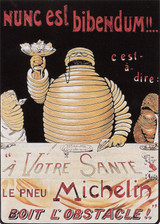Clean Hands Count for Safe Healthcare
Clean hands can protect you from serious infections while you are a patient in a healthcare facility.
What’s The Problem?
Most germs that cause serious infections in healthcare are spread by people’s actions. Hand hygiene(https://www.cdc.gov/handhygiene/) is a great way to prevent infections. However, studies show that on average, healthcare providers clean their hands less than half of the times they should. This contributes to the spread of healthcare-associated infections(https://www.cdc.gov/hai/) that affect 1 in 25 hospital patients on any given day. Every patient is at risk of getting an infection while they are being treated for something else. Even healthcare providers are at risk of getting an infection while they are treating patients. Preventing the spread of germs is especially important in hospitals and other facilities such as dialysis centers and nursing homes.
The Clean Hands Count Campaign
CDC’s Clean Hands Count campaign aims to improve healthcare provider adherence to hand hygiene recommendations, address myths and misperceptions about hand hygiene, and empower patients to play a role in their care by asking or reminding healthcare providers to clean their hands.
- Healthcare providers might need to clean their hands as many as 100 times per 12-hour shift, depending on the number of patients and intensity of care.
- Everyone should know the truth about hand hygiene and alcohol-based hand sanitizer:
- Alcohol-based hand sanitizer kills most of the bad germs that make you sick and is the preferred way to clean your hands in healthcare settings.
- Alcohol-based hand sanitizer does not kill C. difficile(https://www.cdc.gov/HAI/organisms/cdiff/Cdiff_infect.html), a common healthcare-associated infection that causes severe diarrhea. Patients with C. difficile should wash their hands with soap and water and make sure their healthcare providers always wear gloves when caring for them.
- Alcohol-based hand sanitizer is more effective and less drying than using soap and water, and does not create antibiotic-resistant superbugs.
- Hand hygiene should be a topic of conversation between healthcare providers and patients. Healthcare providers can explain how and why they clean their hands before, after, and sometimes during patient care, and let patients know it’s ok to ask about hand hygiene.
- Patients and their visitors can protect themselves by cleaning their own hands often.
Recent Posts
-
Ergonomic Cleaning & Material Handling: Why Tool Design Matters
Safety, efficiency and comfort are important factors when it comes to cleaning and material han …Mar 09, 2025 -
Save with Quality Replacement Parts
Here at Union Jack, we want to ensure you will get the longest life out of your tools and the most …Sep 17, 2024 -
The Origin of the Michelin Guide
From a little red guide book to an iconic standard in international fine dining, have you ever w …Mar 10, 2024



